News & Commentary
Oct 14, 2020
We Resolved Our Lawsuit Seeking Protections for Incarcerated People During COVID-19, but the Work Isn't Over
Along with our partners Arnold & Porter, today we announced a resolution in Voltz-Loomis, et. al, v. McMaster, et. al., our federal lawsuit filed on behalf of people incarcerated by the South Carolina Department of Corrections (SCDC). The suit sought immediate relief to protect incarcerated people during COVID-19. Today’s resolution requires SCDC to follow newly adopted procedures to reduce the risk of contracting COVID-19 for all people who are incarcerated in state prisons. As a result of the resolution, SCDC has produced a COVID-19 response policy implementing procedures based on CDC guidelines, including sanitation and medical guidelines. Additional policy provisions include:
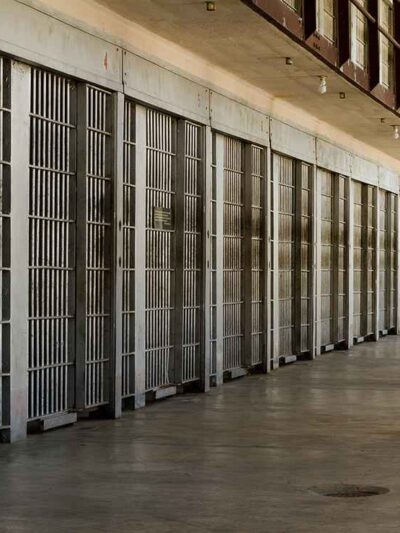
Sep 01, 2020
Another Weekend of Police Violence in Charleston
This past weekend, people protesting in Charleston for racial justice and against police violence were again met with police violence. This has become a disturbing pattern.This recent police escalation comes nearly three months after Charleston area law enforcement departments, including the Charleston Police Department, participated in mass police violence on May 31 in Marion Square, deploying potentially lethal weapons against people peacefully protesting. And, later that night area law enforcement continued their violence against Eastside community members.Our city leaders must not allow this police brutality to continue. Our repeated calls (here and here) for accountability have been met with silence from Charleston Police Chief Reynolds and other local and statewide law enforcement leaders whose officers have repeatedly executed this violence against protestors. It is unconscionable that law enforcement have chosen to respond to community concerns about police violence with silence.It has been over eight months since the publication of the CPD racial bias audit, which found, among other things, that Black community members were 2.8 times more likely to face the use of force from CPD officers. Despite these serious concerns documented in the audit, 2020 CPD data continues to paint a disturbing picture. For example, while Black and white people use marijuana at roughly the same rate, so far this year Black people are approximately 8 times more likely to be arrested for marijuana possession and 10 times more likely to be cited in Charleston. And, these disparities have increased over the 2019 disparity rates.The recent police violence coupled with the continued massive racial disparities in the enforcement of our laws is a contradiction of city leaders’ claims to be invested in racial justice.Over the past several years, the City of Charleston has taken steps to demonstrate to the community a concern for racial justice, including apologizing for its role in slavery, commissioning a racial bias audit of the police department, establishing the “Special Commission on Equity Inclusion and Racial Reconciliation,” and removing the Calhoun monument from Marion Square.Now is the time to follow these gestures with concrete actions to reduce harms enacted on Black people in Charleston. In the birthplace of America’s first police force which was originally established as a slave patrol, this expansion of policing is a direct dismissal of the outcries of Black people who continue to be oppressed by the racist foundation and structure of policing in Charleston.Law enforcement’s perpetuation of these violent attempts to silence their critics serves as an important reminder that our policing system isn't broken — it's working as it was designed. Police actions this past weekend made another great case for why we must drastically reduce the role of policing in our society, especially in communities of color that historically have been over-policed.
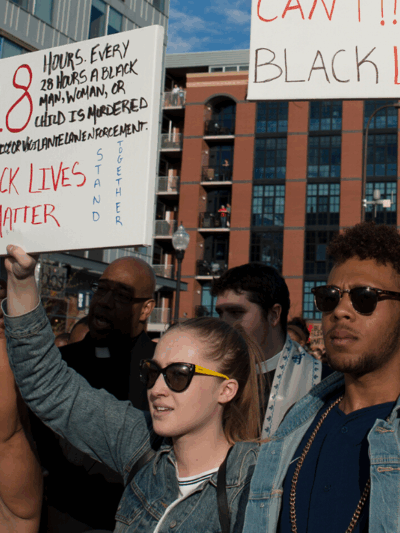
Jul 29, 2020
We're still waiting for the Charleston Police Department to hold its officers accountable for violence against protestors
Today we sent a second letter to the City of Charleston reiterating objections to mass police violence in and around Marion Square by the Charleston Police Department (CPD) on the afternoon and evening of Sunday, May 31, 2020. This action follows an initial letter we sent on June 2 calling on local law enforcement leaders to publicly explain their rationale for responding to non-violent protests against police violence with more police violence. The June 2 letter also issued a list of demands including a public apology from law enforcement leaders as well as outlined plans for holding officers accountable and guaranteeing people’s right to protest in Charleston.On June 22, nearly 60 days since this police brutality, the city finally responded. In their letter, they bypassed our questions and demands and defended law enforcement’s actions on May 31.The CPD has attempted to justify its actions on May 31 by pointing to events that happened during the previous evening. But, the CPD’s own policy on use of force clearly states that force is only justified in times of imminent danger. A past event, even by their own standard, is not an acceptable reason for Charleston police officers to carry out mass violence and deploy potentially lethal weapons against people peacefully exercising their Constitutional rights.In addition to the use of force policy outlined in the CPD’s General Administrative Order, officers also violated the department’s rules on the use of chemical agents, which are only deemed necessary “where a serious danger to life and property exists and other methods of apprehension would be ineffective or more dangerous.”Our letter also raises concerns about excessive and unprovoked violence carried out by police on residents of Charleston’s Eastside neighborhood on the evening of May 31. The city and Charleston Police Chief Reynolds have dismissed concerns from Eastside residents and their allies about CPD’s violent actions in their neighborhood. This excessive, unprovoked police action is a part of a pattern against Black Eastside community members that cannot be ignored. Residents have called for services that will improve safety and, instead, CPD is using city resources to increase patrols. We know what happens when police go down this road, it’s not new. All this will do is further criminalize Black and poor people.
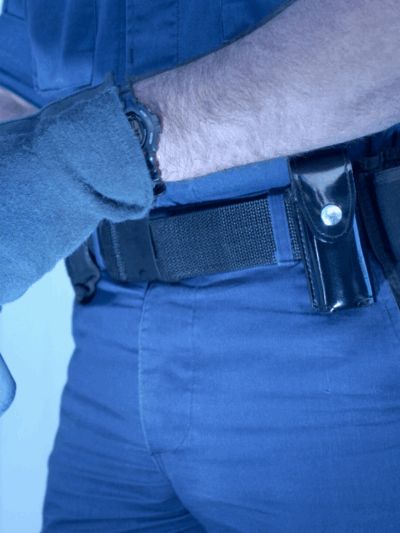
Jul 20, 2020
Lawmakers Must Demand Effective Police Body Camera Programs
Following the murder of Walter Scott by the North Charleston Police Department five years ago, South Carolina lawmakers passed legislation requiring all law enforcement officers to wear body cameras. In the five years since the law’s passage, law enforcement have turned a tool sold to the public as a way to strengthen law enforcement accountability and community trust of law enforcement into a tool to shield law enforcement officers from accountability. As calls for expanding body camera programs grow in the wake of more police violence, lawmakers must codify strong policies governing their use, including the following mandates:
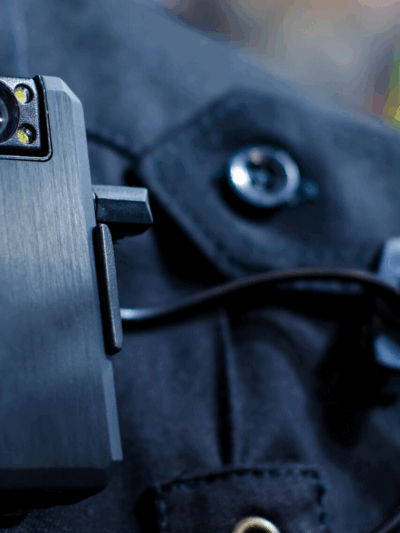
Jul 18, 2020
We Won't Stop Fighting for Incarcerated People.
We are united in solidarity with incarcerated people and their loved ones and allies. The recent spike in COVID-19 cases and deaths among our state’s prison population is the tragic result of a failure of leadership.South Carolina has a moral and legal obligation to protect the people it incarcerates. For months we have asked Governor Henry McMaster, Department of Corrections Director Bryan Stirling, and the Board of Paroles and Pardons uphold this obligation in the face of COVID-19, including releasing those most vulnerable to contracting and dying from this virus. South Carolina officials have ignored their responsibility. The consequences are tragic and predicted.Because South Carolina’s leaders have failed to uphold their Constitutional duty to protect people in their custody, in April, we filed a federal lawsuit against them. The judge assigned to our case has ordered us to work with the state to find ways that will improve conditions for incarcerated people.These priorities include:

May 22, 2020
We're suing to protect incarcerated people in Spartanburg County
Along with our partners Root & Rebound, South Carolina Appleseed Legal Justice Center and Wyche, P.A., we filed a lawsuit today in the United States District Court challenging Spartanburg County’s failure to protect incarcerated people from risks associated with a COVID-19 outbreak in custodial settings. Protection and Advocacy for People with Disabilities, Inc. (P&A) also joined the lawsuit as a plaintiff on behalf of incarcerated people with disabilities. Defendants named in the suit are Sheriff Chuck Wright and Jail Administrator Allen Freeman.
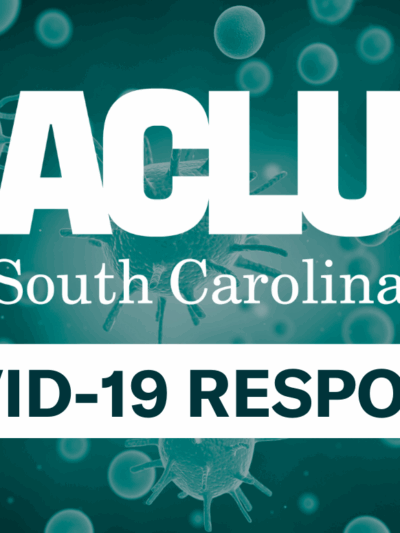
May 20, 2020
"We The People" Means ALL of Us: Our Blueprint for COVID-19 Relief
COVID-19 has illuminated our failures as a society. To urge decision makers to minimize the harms made worse by this pandemic, today we released a blueprint for COVID-19 relief in South Carolina. The blueprint calls on our leaders to ensure the burdens of the pandemic do not unfairly fall on South Carolina’s most vulnerable communities and that all responses are rooted in science and public health and are no more intrusive on civil liberties than necessary. To ensure a COVID-19 response that protects all people, South Carolina must:
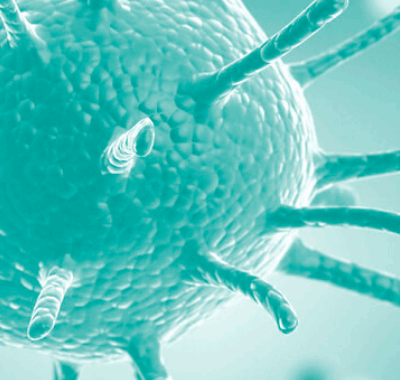
May 06, 2020
A Man in South Carolina Custody Died From COVID-19. Officials Must Uphold Their Duty to Protect Incarcerated People Before It Happens Again.
South Carolina has a moral and legal obligation to protect the people it incarcerates. For weeks we have asked South Carolina officials to uphold this obligation in the face of COVID-19, including releasing those most vulnerable to contracting and dying from this virus. South Carolina officials have ignored their responsibility. The consequences are tragic and predicted. James Slater, a 70-year-old man incarcerated at Allendale Correctional Institution, died yesterday from COVID-19. To be clear, no one in custody should die in connection to abuse or neglect by the state.Mr. Slater’s death was preventable. The rate of recidivism for people over age 65 is nearly 0%, meaning almost all incarcerated people over age 65 pose virtually no threat to public safety. Additionally, there are multiple avenues by which Mr. Slater and other incarcerated people his age or older could have been released to a safer environment ahead of a COVID-19 outbreak. The Director of the South Carolina Department of Corrections (SCDC) has the authority to petition the parole board to release people who are 70 years of age or older. During a state of emergency, the Governor has the authority to do anything necessary to keep people safe. Neither SCDC nor the Governor, we tragically learned yesterday, has upheld their duty to protect.The virus’s ability to spread through asymptomatic carriers has been well-documented. For example, correctional institutions across the country that have issued mass testing have found that as much as 70% of the population of a single institution has tested positive for COVID-19, with a vast majority showing no symptoms at all. Therefore, testing and monitoring only those who are symptomatic is neither a solution nor a good faith effort.It is absolutely essential that those with the authority to act do everything in their immense power to prevent future deaths from COVID-19 in correctional settings. This includes ordering mass testing of all incarcerated people and staff and substantially reducing the number of people held in South Carolina’s prisons and jails.

Apr 22, 2020
Nearly 100,000 more people could die from COVID-19 in jails and surrounding communities if states fail to reduce jail populations. The time to act is now!
South Carolina’s jails and prisons alike have too often become our society’s solutions for people struggling with homelessness and mental health or substance use disorders. Our jail and prison logs are a daily reminder that our criminal justice system is a racist system that stops, arrests, convicts, and incarcerates Black people at staggering rates compared to white people.With COVID-19, our failings as a society leave each of the nearly 30,000 people incarcerated in South Carolina’s prisons and jails facing a potential death sentence. That’s because incarcerated people are highly vulnerable to contracting and dying from COVID-19. They are housed in close quarters and are often in poor health. It is impossible for them to follow the social distancing guidelines.For weeks, public health experts have been urging policymakers to do everything in their power to substantially reduce prison and jail populations to safeguard the lives of those who work and live there. The findings outlined in a new report released today by the ACLU amplify the need to reduce South Carolina’s jail populations immediately.The report focuses on a new epidemiological model that shows COVID-19 could claim the lives of approximately 100,000 more people nationwide than current projections stipulate if jail populations are not dramatically and immediately reduced. These projections hold even if communities across the United States continue practicing social distancing and following public health guidance.South Carolina’s unfortunate embrace of mass incarceration makes this problem even more dire. We’re talking about approximately 10,000 people in South Carolina’s jails alone.Here are three things that our judges, solicitors, law enforcement, and local political leaders can do immediately to substantially reduce South Carolina’s jail population.First, review all people currently held pretrial and immediately release on a personal recognizance bond all but the very few people where pretrial detention is absolutely necessary to ensure the person’s return to court or public safety. Approximately 75 percent of the over 10,000 people in South Carolina’s jails are incarcerated only because they are too poor to afford their bond. These people have not even been convicted of a crime.Second, end the war on marijuana. As we reported on Monday, South Carolina has the second highest rate of marijuana possession arrests in the country. Every 15 minutes somebody is arrested for possessing marijuana in South Carolina - a substance that is legal or decriminalized for personal use in 26 states and the District of Columbia. As we work toward the legalization of marijuana statewide, our local leaders, from solicitors, to city and county leaders, to police chiefs and sheriffs, can immediately stop enforcing South Carolina’s marijuana possession laws. That’s a reduction of around 34,000 arrests each year.Third, prohibit the use of arrests unless necessary to prevent imminent and serious bodily harm to another person and all non-incarceration alternatives have been exhausted. This would not only reduce unnecessary incarceration, but also strengthen trust in law enforcement - a key component to advancing public safety. As the Vera Institute of Justice noted, in “communities where distrust in police is high, people are less likely to report a crime or offer witness testimony, which impedes effective policing.”For weeks we have asked our South Carolina’s political leaders to listen to the experts and take immediate steps to reduce our incarcerated populations. Our political leaders are running out of time, as we saw yesterday moments after we, along with our pro bono partners at Arnold and Porter, filed a lawsuit seeking the release of people at heightened risk of contracting and dying from COVID-19 in South Carolina’s prison system. Shortly after we filed the lawsuit, the South Carolina Department of Corrections disclosed that a second incarcerated person tested positive for COVID-19 at Kirkland Correctional Institution, leading to a two-week lockdown at the facility. Because Kirkland is the facility where all newly sentenced people come before being sent to another prison, the Department of Corrections has announced that it will not take newly sentenced people for two weeks, leaving additional people warehoused in South Carolina’s jails until Kirkland opens again.As the new ACLU model found, aggressive action and policy change could save as many as 23,000 people in jail and 76,000 in the broader community if we stop arrests for anything but the five percent of crimes defined as most serious by the FBI — including murder, rape, and aggravated assault — and double the rate of release for those already detained.Incarceration should not become a death sentence. The ACLU model shows that a larger catastrophe can be prevented if governors and all system stakeholders drastically reduce their incarcerated populations.We cannot do this alone. Your voice can make a difference. Please click this link to learn how you can take action!

Stay Informed
Sign up to be the first to hear about how to take action.
By completing this form, I agree to receive occasional emails per the terms of the ACLU’s privacy statement.
By completing this form, I agree to receive occasional emails per the terms of the ACLU’s privacy statement.
